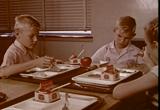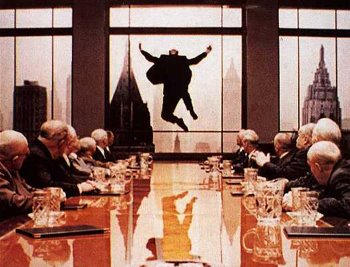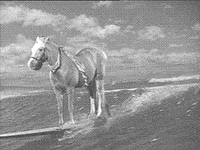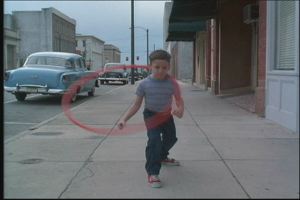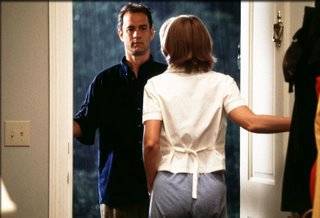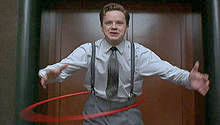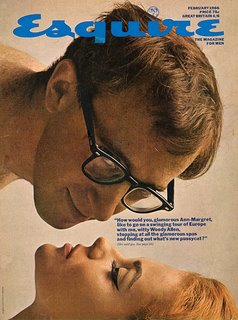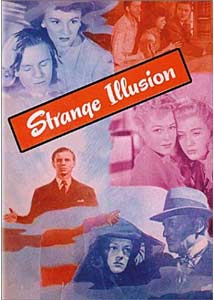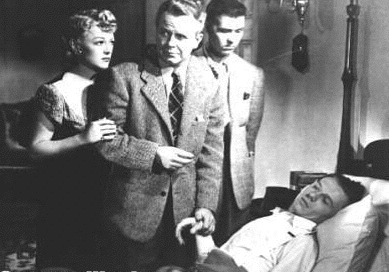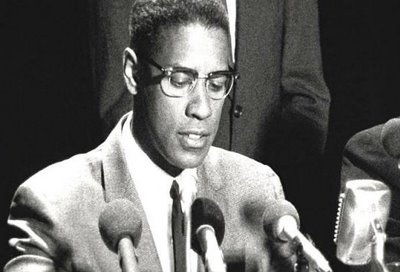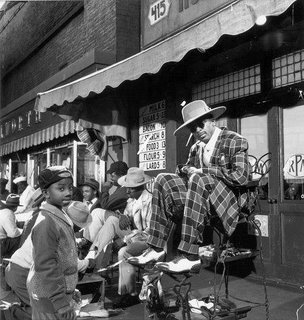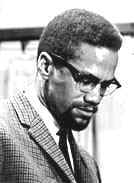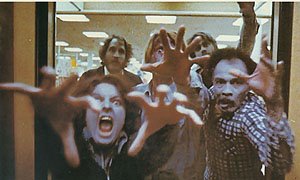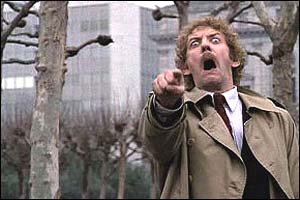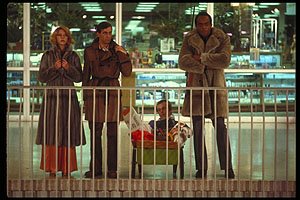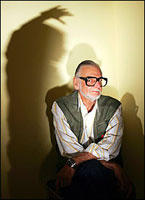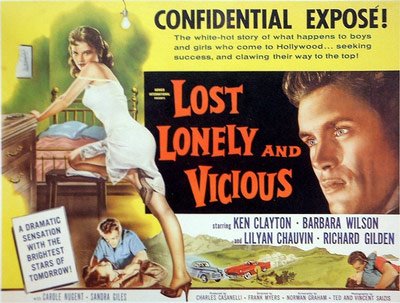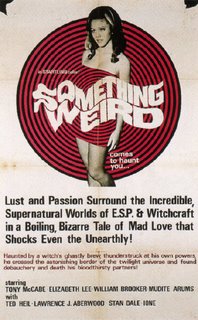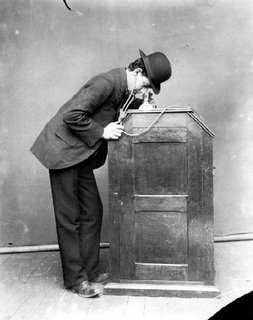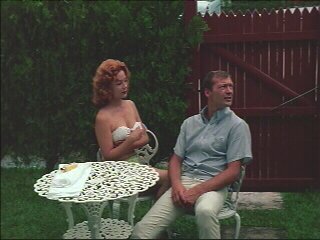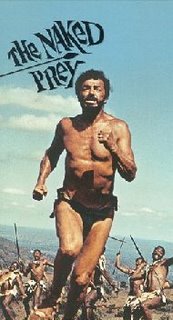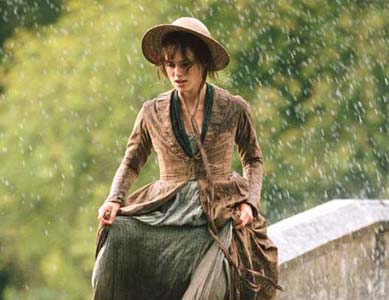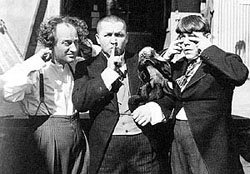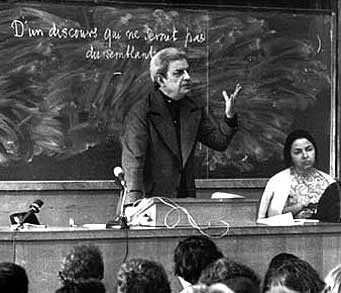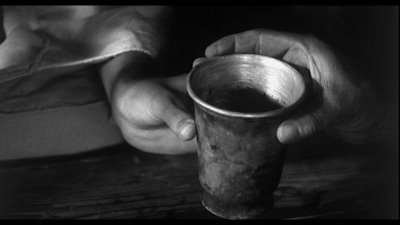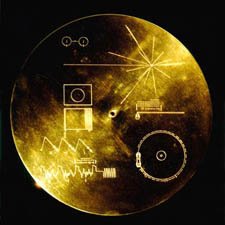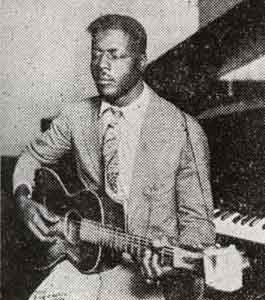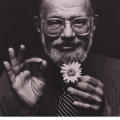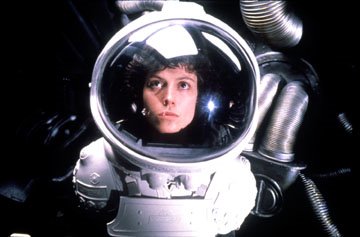
Yesterday was my thirteen-year-old son's first "day" of school--two hours, actually, just enough time to tell his teachers that we have a new dog--Frankie the pug; dear Patty the mutt passed away earlier this summer--and to forget to bring home a reading list we could've gone over. And they're off.
I usually like to mark such events with something special; so of course we watched three movies and ate junk food. This also marked the first time I've seen the original
Alien on DVD--and not really "original," since we opted for the "director's cut," seeing three or four scenes that weren't in the theatrical release. (I don't want to write about this new cut right now; I'll simply agree with Ridley Scott that, while the deleted scenes have merit, the original release is better.) And it was interesting watching it after
Silent Hill (2006)--and before
Pirates of the Caribbean: The Curse of the Black Pearl (2003). I'll leave Jack Sparrow alone for now;* I'm more interested in comparing the two horror films.
Silent Hill is based on a video game, but that isn't necessarily a problem. Yes, video games can employ a narrow, first-person point-of-view; but so do some movies, even good ones, especially mystery/suspense and horror films; so the horse still draws the cart, since video games in large part mimic movies--seek/chase movies in particular. I don't think watching
The Wages of Fear (1953) and trying to picture it as a video game automatically demeans the film, because the best games distill--not merely "simplify"--the suspense, shock, and chase elements of genre pictures and combine them with the pleasures of the arcade shooting gallery. And I'm old enough to remember games with small tin geese arcing uncertainly and tiny lurching deer heads poking out from two-dimensional tree-trunks in the foreground, while you fired away with your swivel-mounted miniature rifle at what you hoped was their general vicinity. And I loved them, and just writing about them makes me want one in front of me right now so I can hear that Bang! and watch the silhouettes flip backwards. And yet: go back in a time machine and bring the kid I once was any contemporary shoot-em-up video game (in which the game shoots back!), and I know I'd be crazy for them--after being scared to death by their gore and violence, and thoroughly flummoxed by the split-second eye-hand coordinations necessary to stay alive for more than ten seconds.
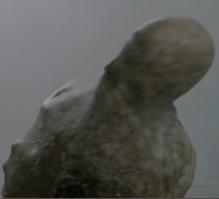
Well, I've written about this before, when I saw the
Doom movie--which I liked.
Silent Hill, on the other hand, seems flat and boring--despite some appropriately startling monsters. It's the same old story: lazy writing abetted by a cynical attitude toward the audience. For instance, within five minutes of the movie's opening titles, the woman is venturing alone with her sleepwalking, obviously disturbed child to the mysterious--heck, hellishly combustible and rats-in-the-walls/dwellers-in-darkness Lovecraftian--town of Silent Hill (which the girl seems to be seeking in her somnambulistic, suicidal forays) and immediately losing the child, just so the movie can start the chase. I could see the marketing wheels turning, convinced that the audience does not want to care about the characters--after all, gamers often skip over the cut scenes (or, more tellingly,
cinematics) that introduce or stop the game to advance a storyline, establish characters, and so on--but I don't think even the gaming audience only wants the movie simply to start throwing monsters at them. Imagine if
Silent Hill had taken fifteen minutes to allow us to see how deeply troubled the little girl is, how desperate her mother, how convinced her father that the doctors know best, all snowballing into the foolish, panicked decision to abscond with the little girl and seek the source of the nightmares. We now have
people--more or less--to worry about; and no matter how simpleminded one might think is the audience for video game movies--and to be fair, no matter how simpleminded it might actually be--the movies any audience likes best are the ones that have good stories with people they remember, all presented with a visual sense that fits plot and character. Even
Doom recognized this, painting--and yes, with the broadest of strokes--the various characters' alliances and attitudes well before we watched them blasting monsters.
Meanwhile,
Alien (like
Jaws two years earlier, and a number of others since) knows that, while its audience wants to be shocked and terrified (remember the teaser trailer--was it the first of its kind?--in which the egg cracks open, the sickly green light bursts all over, and the tagline informs us that "In space no one can hear you scream"?), the viewer also wants to feel that some semblance of real people is in peril.
Alien may do this in shorthand, but we are given more than cutouts in the crosshairs.
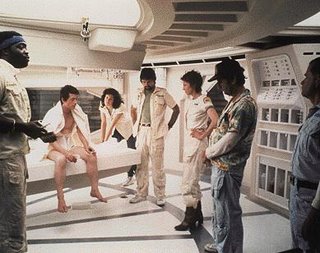
But beyond character, even plot, a horror film depends on mood. And watching it yesterday, I was reminded how much mood
Alien has, thanks to the monster design, the music, the sets and costumes, the lighting and camera movement; and more than that the film's pacing, especially before the monster bursts (sorry) on the scene. Nothing you looked at or saw seemed innocent; and everything that did, seemed in imminent peril. In
Alien's first fifteen minutes, Scott generates tension and dread, and a serviceable feeling of concern for its victims.
Silent Hill just tosses CGI effects at you.
And that is the final failure of so many contemporary horror films. In the lazy decision that more is more, the filmmakers present us with a cavalcade of creeps dutifully marching across the screen, each more outlandishly blood-gushing than its predecessor--and all in the end merely empty blood fireworks displays, so unbelievable they become cartoonish (in a bad way) and dull. I'll admit some of
Silent Hill's monsters seem almost beautiful in their surreal awfulness, but they tromp and jerk around in a movie without tension, without purpose, let alone pacing or integration with character and plot. At one point, we even get a "cinematic" of sorts, to outline the town's history. OK, it is cleverly presented as grainy newsreel or hidden video--and in itself is well-crafted--but, as in a game, the movie has to come to a dead stop to make room for a movie-within-a-movie to fill in for a real narrative. Now, I can understand the thinking behind the cut scenes in video games, but I'm always suspicious when the same thing happens in a film, even one based on a game. We're being told that the monster rally is all they have, and that any story--or idea behind the story--is incidental. And again, loading us up with mere visual excess is not enough. The scariest stuff in
Silent Hill comes in the small touches: the lurch of a monster's gait, the mewling sounds of another, the sense that one is moving in a dream. Like Val Lewton with a budget. A good horror film is waiting there, but we don't get it.
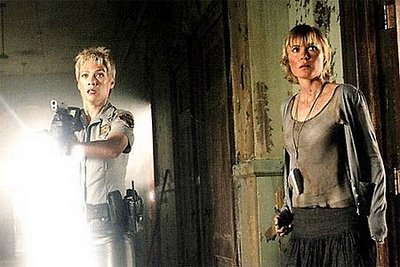
So my son and I watched
Alien, and while it does depend on shocks, its commitment to mood and character makes it a much richer experience than
Silent Hill. The crew of the
Nostromo have distinct personalities--again, sketched quickly, but clearly. Geez, the two women (Rhada Mitchell and Laurie Holden) who search for the little girl in
Silent Hill even
look the same; but there's no way one is going to confuse Tom Skerritt with John Hurt or Ian Holm, or Sigourney Weaver with Veronica Cartwright, let alone Harry Dean Stanton with Yaphet Kotto. How smart to give us such disparate shapes and sizes, and to add to them variant senses of duty, humor, and morality. That way, when the monster shows up, we know who's in trouble, and we worry accordingly.

There's more to consider, not the least of which is the element of Freudian sexuality running through both movies, and which nicely illustrates their points of contact as well as differences. Good horror pictures do tend toward that crazy old Austrian; he provides an easy but potent (sorry again) subtextual machine, part organic, part cold logic--a regular cyborg--atop which the movie runs, as on slippery grease, keeping those diabolical wheels turning.
Alien evokes male sexual fantasies (Sigourney Weaver) and fears (everything else), and capitalizes on misogynist views of orgasm (the sound editing is especially distressing, not to mention Weaver's brief encounter--sorry once more--with the alien at the film's climax--oh, I give up), while
Silent Hill opts for Freud's assertion that women "laid the foundations of civilization by the claims of their love"--for their children and the maintenance of the home, since they have been "forced into the background by the claims of civilization" and have adopted "a hostile attitude towards it" (
Civilization and Its Discontents).
This mother-urge in
Silent Hill--strong as Ripley's in the first sequel,
Aliens (but done with more depth and poignancy in the latter)--has potential, especially when we see that one of the sources of evil in
Silent Hill is the witch-burning matriarch (Alice Krige), who seems to be the antithesis of the Freudian mother--or maybe, even better, simply its
doppelganger--as she defends civilization by sacrificing its children, and thus becomes opposed to the maternal need to keep the family united; after all, one cannot build a civilization by staying at home all one's life (unless by "civilization" we mean chat rooms run by husky guys way past twenty, hunched over in their parents' basement rec room, Comicon t-shirt doubling as a napkin, stained with Cheetos-dust; and that may be the next step).
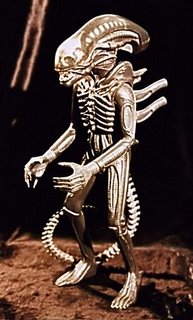
But as it stands, the Freudian element of
Silent Hill does not generate much interest--unlike that of the horror-movie queen (if I may use the term) of all this,
The Shining (1980). And heck, let's not forget that the computer in
Alien is named "Mother," and is willing to kill the crew to save the alien--raising the question of whose mother the ship really is. Again, though,
Silent Hill simply asserts mother-love, then tosses monsters and speeches at us. And I want more, even from a horror movie.
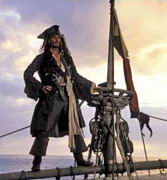
*I'd like to mention, though, that the real joy of this second viewing of
Pirates of the Caribbean was assuring my son that pirates really did have a code--codes, really, depending on where you did your pirating, and with whom--and that some of them dressed as outlandishly as Jack Sparrow, and that others had the kinds of delusions of grandeur of Sparrow's nemesis, Barbossa (Geoffrey Rush)--and I want a movie in which both he and Ben Kingsley are villains; straight or camp, those two know how to make with the villainy--and that there really is a Tortuga, and that pirates really were hung and left to rot along the harbor. At least according to David Cordingly's
Under the Black Flag, the only pirate history I've ever read--aside from some background information in a book I owned when I was a kid--and which I hope is still waiting patiently for me in a box in my basement--with, if I remember correctly, the self-evident how-to title,
Hunt for Sunken Treasure.
